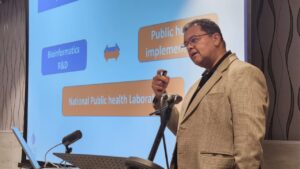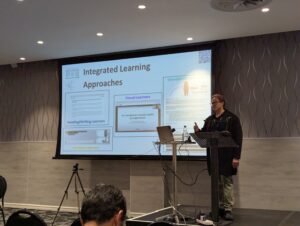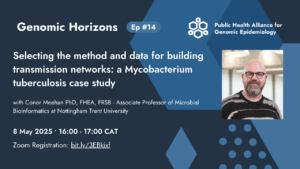
Editorial
As the world continues to grapple with the realities of public health in the data era, the role of data-driven action has never been more vital. In October this year, scientists, policymakers, and bioinformaticians from around the world will gather in Cape Town for the PHA4GE Conference 2025 under the theme “Data for Action: Overcoming Challenges and Seizing Opportunities in Public Health Genomics.” This timely meeting offers a platform to reflect on how genomic epidemiology is shaping the future of global health and to strategize for a more resilient, data-informed public health system.
This imperative was demonstrated with remarkable urgency earlier this year when African scientists set a new record by confirming an Ebola outbreak in Uganda over the course of a single weekend. The rapid response was a testament to the continent’s growing expertise in genomic epidemiology and the power of collaboration between Ugandan and South African research teams. In an era where emerging pathogens threaten to outpace our response capabilities, such feats provide a hopeful blueprint for the future.
Meanwhile, global partnerships continue to strengthen. Professor Alan Christoffels’ recent visit to Europe forged promising new ties between PHA4GE and key institutions in Switzerland and Germany, paving the way for further collaboration in bioinformatics. Similarly, Dr. Joshua Levy’s visit to the PHA4GE Secretariat offices at the University of the Western Cape underscored the value of international cooperation in advancing genomic science. These exchanges are a reminder that science is, at its core, a shared endeavour that transcends borders.
Learning remains a cornerstone of this movement. The latest installment of the PHA4GE Genomic Horizons Webinar Series offers a deep dive into Public Health Phylogenetics, a field essential for understanding how pathogens evolve and spread. At the same time, PHA4GE and SANBI are helping to refine Africa’s first data-sharing platform, Agari, through expert-led curation workshops. Such initiatives are crucial in ensuring that genomic data is not only collected but also meaningfully applied to real-world challenges.
Another frontier in genomic epidemiology is wastewater surveillance. PHA4GE’s latest guidance and contextual data specifications represent a major step forward in harnessing environmental genomics for public health. As cities worldwide explore how to integrate wastewater monitoring into routine pathogen surveillance, these resources will prove indispensable.
Finally, as we mark International Women’s Day, it is fitting to celebrate the contributions of women in science. Dr. Tracey Calvert-Joshua’s appearance on the PHA4GE Podcast offers an insightful reflection on the progress made and the road ahead. If genomic science is to fulfil its promise, it must do so with a commitment to diversity, inclusion, and the empowerment of all voices in the field.
The world of public health genomics is fast-moving, interconnected, and brimming with potential. As these stories show, the momentum is undeniable—and the work ahead is as urgent as it is inspiring.
Jamie Southgate
If you haven’t done so already, subscribe to receive PHA4GE newsletter via email.



